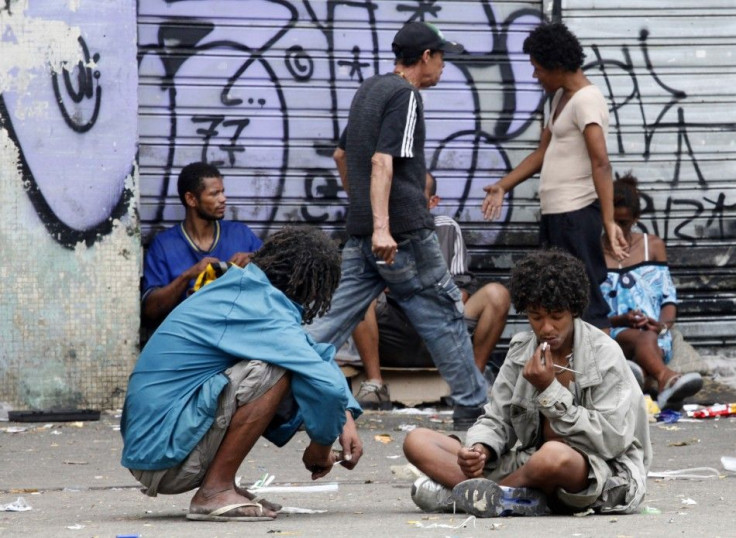Twenty Years After Carandiru Massacre, Brazil's Prisons Still Deplorable

It has been two decades since a shocking massacre in Brazil led to the deaths of more than a hundred inmates at the Carandiru jail in Sao Paulo, but the city has not forgotten. On Wednesday, hundreds of people held a vigil for the victims at the historic Sé Cathedral.
The massacre was a symptom of gross mismanagement in Brazil’s prison system. And although the incident made headlines all around the world, it did not lead to much-needed reforms. Conditions in the jails of Sao Paulo -- and all across the country -- have not improved during the past 20 years.
In 1992, a riot broke out in Carandiru over a soccer game. When the dispute escalated into a gang fight, riot police were called in to quell the clash. They brought guns, and didn’t hesitate to use them.
Former prisoner and survivor Jacy de Oliveira, 47, told the BBC that he was surprised when the officers opened fire.
"We never thought they would come in and kill people randomly, as not everyone had joined the rebellion," he said.
"The policemen began shooting everyone. I was on the fifth floor. If you looked a policeman in the eyes, you were dead."
The police claimed they were following orders, but their crackdown quickly turned into a massacre. By the end of the day, 111 prisoners had lost their lives in the melee.
The Carandiru tragedy was the worst-ever recorded incident of police violence against prisoners in Brazil, but the riot that sparked the clash was not unique at all. Prison rebellions and conflicts were a common occurrence, not least because Brazil’s jails had long been pits of overcrowding, mismanagement and violence.
And that hasn't changed since 1992.
The past decade has seen reports of physical abuse and torture, cohabitation of petty and violent criminals, rape, endemic overcrowding, extrajudicial executions and widespread gang violence.
Human Rights Watch reported this year that the prison population has tripled over the last 15 years; it now exceeds 500,000. Nearly half of those inmates have not been charged, and are instead serving a pre-trial detention.
By the end of last year, jails across the country were at 167 percent of capacity.
The roots of this problem are deep. Brazil suffers from a lopsided justice system wherein those who can afford lawyers are far less likely to be charged with a crime, let alone put behind bars.
However, opinion polls in Brazil reveal widespread public support for tough-on-crime policies. The Economist reports that in one 2008 survey, 73 percent of respondents said prison conditions should be even worse, and 43 percent agreed with the phrase: “the only good criminal is a dead criminal.”
It seems that the vigil attendees at Sé Cathedral on Wednesday are quite alone in their sympathy for those who ended up on the wrong side of the system.
To make matters worse, only one of the dozens of officers who killed the 111 Carandiru inmates two decades ago has been convicted of a crime. That was Col. Ubiratan Guimaraes -- the man who led the deadly raid. He was found guilty of using excessive force in 2001, but appealed and was acquitted in 2006.
That very same year, Guimaraes was found shot dead in his home in Sao Paulo. His killer has never been identified. As for the other officers, they will finally face trial in January of 2013. The Carandiru facilities themselves were demolished in 2002.
For the half-million people who are currently incarcerated in Brazil, that’s little consolation. Honoring the victims of Carandiru would mean a complete overhaul of the country’s criminal justice system, and that kind of comprehensive change has been a long time coming.
© Copyright IBTimes 2024. All rights reserved.






















